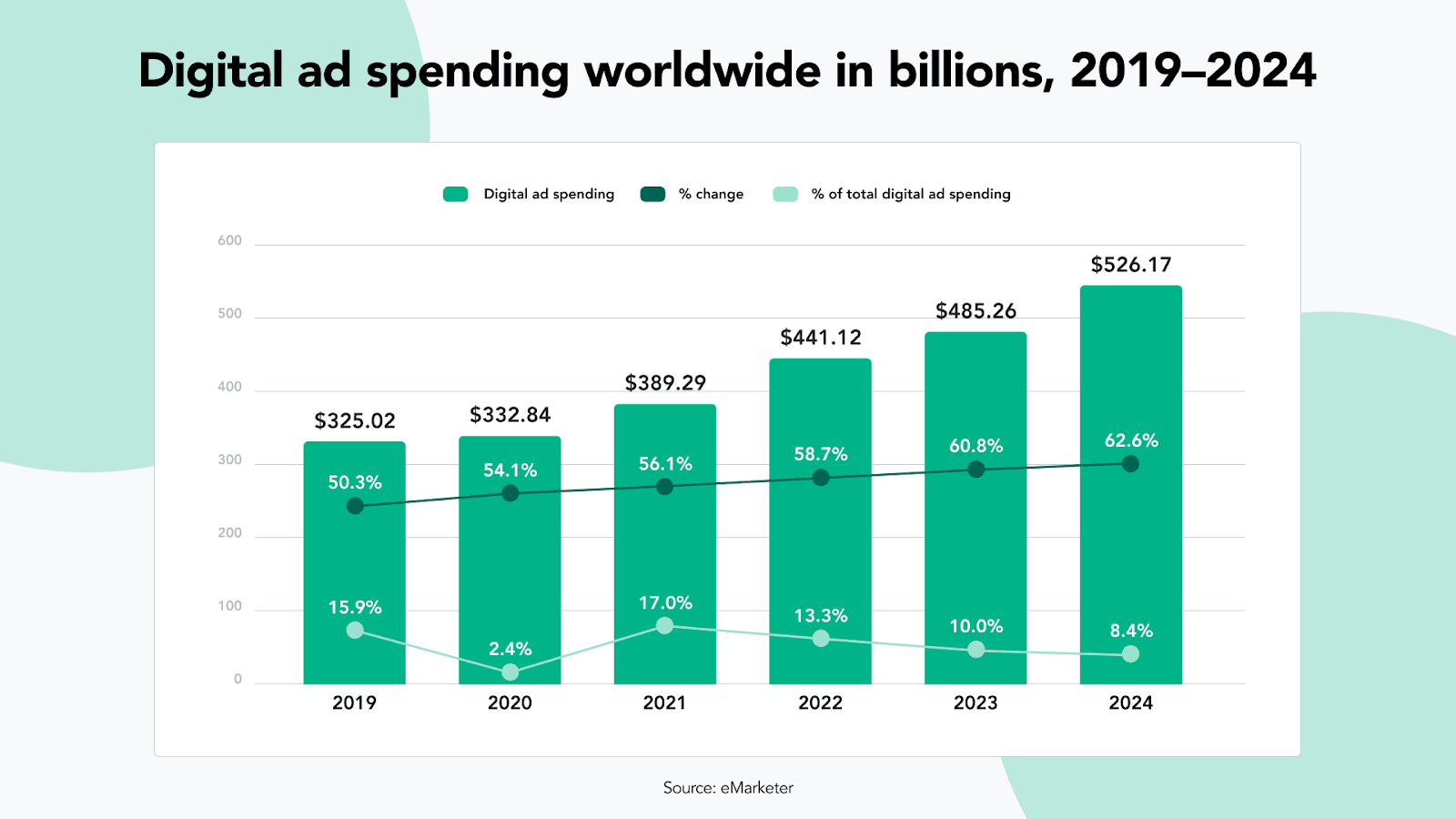
In the ever-evolving world of online search, two powerful forces reign supreme: keywords and backlinks. These dynamic duos are the driving force behind Google search rankings, shaping the way websites are discovered and ranked on the search engine giant.
Keywords play a crucial role in optimizing web content and helping search engines understand the relevance of a website. By strategically incorporating relevant keywords into your content, you increase the chances of your website appearing prominently in search results. However, it’s important to strike a balance and avoid overstuffing your content with keywords, as this can negatively impact your website’s ranking.
But what about backlinks? Backlinks are like digital endorsements, indicating to search engines that your website is trusted and authoritative. The more high-quality backlinks you have pointing to your site, the higher your website is likely to rank in search results.
When combined, keywords and backlinks form a powerful synergy that can propel your website to the top of search rankings. By optimizing your content with relevant keywords and building a network of quality backlinks, you can ensure that your website attracts organic traffic and achieves higher visibility online.
The importance of keywords in search rankings
Keywords play a crucial role in optimizing web content and helping search engines understand the relevance of a website. By strategically incorporating relevant keywords into your content, you increase the chances of your website appearing prominently in search results. However, it’s important to strike a balance and avoid overstuffing your content with keywords, as this can negatively impact your website’s ranking.
One of the key factors that search engines consider when ranking websites is keyword relevance. When a user types in a search query, search engines scour the web to find pages that are most relevant to the query. By using the right keywords in your content, you can signal to search engines that your website is a valuable resource for that particular topic.
To choose the right keywords for your website, it’s essential to understand your target audience and their search intent. Put yourself in the shoes of your potential customers and think about the terms they might use when searching for products or services similar to yours. Conducting keyword research using tools like Google Keyword Planner or SEMrush can help you uncover relevant keywords and their search volume.
When optimizing your website for keywords, it’s important to include them in strategic locations such as the page title, headings, meta descriptions, and within the body of the content. However, it’s crucial to maintain a natural flow and avoid keyword stuffing, which can lead to penalties from search engines. Instead, focus on creating high-quality, engaging content that incorporates keywords in a meaningful way.
Types of keywords and how to choose the right ones
Keywords come in different forms, and understanding the types of keywords can help you choose the right ones for your website. Broad match keywords are general terms that have a wide search volume but may also have a lot of competition. Long-tail keywords, on the other hand, are more specific and have a lower search volume but can be highly targeted.
When choosing keywords, it’s important to strike a balance between search volume and competition. High-volume keywords may seem appealing, but they often come with fierce competition, making it difficult to rank for them. Long-tail keywords, on the other hand, may have lower search volume but can attract more qualified traffic.
In addition to search volume and competition, it’s also important to consider the intent behind the keywords. Are users searching for information, looking to make a purchase, or seeking a solution to a problem? By understanding the intent behind the keywords, you can create content that aligns with the user’s needs and increase the chances of conversion.
Keyword research tools and techniques
Keyword research is a critical step in optimizing your website for search engines. Fortunately, there are several tools and techniques available to help you find the right keywords for your business.
One of the most popular keyword research tools is Google Keyword Planner. This free tool allows you to discover relevant keywords, see their search volume, and analyze their competition level. By using this tool, you can uncover valuable insights that can guide your keyword strategy.
Another useful tool is SEMrush. This comprehensive SEO tool not only provides keyword research capabilities but also allows you to analyze your competitors’ keywords and backlink profiles. By understanding what keywords your competitors are targeting, you can identify new opportunities and stay ahead in the search rankings.
In addition to these tools, you can also gather keyword ideas by analyzing your website’s analytics data, monitoring social media conversations, and conducting surveys or interviews with your target audience. By gathering insights from various sources, you can create a comprehensive list of keywords that resonate with your audience.
On-page optimization for keywords
Once you have identified the keywords you want to target, it’s time to optimize your website’s on-page elements. On-page optimization refers to the process of optimizing the content and HTML source code of a webpage to improve its visibility in search engine rankings.
Start by optimizing your page titles. Include your target keywords in the title tag, but make sure it remains concise and descriptive. The title tag is one of the most important on-page SEO factors, as it appears as the clickable headline in search engine results.
Next, optimize your headings. Use heading tags (H1, H2, H3, etc.) to structure your content and make it easier for both users and search engines to understand. Include your target keywords in the headings, but again, make sure it sounds natural and provides value to the reader.
Meta descriptions, although not a direct ranking factor, can influence click-through rates from search engine results. Craft compelling meta descriptions that include your target keywords and provide a brief summary of what users can expect from your page.
Within the body of your content, strategically incorporate your target keywords. Aim for a keyword density of around 1-2%, but remember to prioritize user experience over keyword optimization. Write naturally and focus on providing valuable, engaging content that answers the user’s query.
Understanding backlinks and their role in SEO
While keywords help search engines understand the relevance of your website, backlinks are like digital endorsements, indicating to search engines that your website is trusted and authoritative. The more high-quality backlinks you have pointing to your site, the higher your website is likely to rank in search results.
Backlinks are essentially links from other websites that direct users to your site. They act as a vote of confidence, signaling to search engines that your content is valuable and worthy of being shared. However, not all backlinks are created equal. Search engines consider the quality, relevance, and authority of the linking website when determining the impact of a backlink.
Building high-quality backlinks
Building high-quality backlinks is a crucial aspect of any SEO strategy. Here are some strategies to help you acquire backlinks from authoritative websites:
1. Create valuable content: Producing high-quality content that provides value to your audience is the foundation of a successful backlink strategy. When your content is valuable, other websites are more likely to link to it naturally.
2. Guest blogging: Guest blogging involves writing content for other websites in exchange for a backlink. Look for websites in your niche that accept guest posts and provide valuable content that aligns with their audience’s interests.
3. Outreach and relationship building: Reach out to website owners and influencers in your industry and offer to collaborate on content or share their content with your audience. Building relationships can lead to natural backlink opportunities.
4. Broken link building: Identify broken links on authoritative websites and reach out to the website owners, offering your content as a replacement. This strategy provides value to the website owner by helping them fix broken links while gaining a valuable backlink for your site.
5. Social media promotion: Share your content on social media platforms and engage with your audience. When your content gets shared and discussed, it increases the chances of attracting backlinks from interested parties.
Guest blogging and outreach strategies for backlinks
One effective way to build backlinks is through guest blogging. Guest blogging involves writing content for other websites in exchange for a backlink to your site. This strategy allows you to tap into the audience of the hosting website, expand your reach, and gain valuable backlinks.
When guest blogging, it’s important to choose websites that are relevant to your industry or niche. Look for websites that have a good domain authority and engage with an audience that aligns with your target market. By writing valuable content that resonates with the hosting website’s audience, you increase the chances of attracting backlinks and driving referral traffic to your site.
In addition to guest blogging, outreach strategies can also help you acquire backlinks. Outreach involves reaching out to website owners, influencers, or bloggers in your industry and building relationships with them. By offering to collaborate on content, share their content with your audience, or provide valuable insights for their audience, you can establish mutually beneficial partnerships that lead to backlink opportunities.
When conducting outreach, it’s important to personalize your messages and demonstrate the value you can provide. Avoid generic outreach templates and take the time to research the recipient’s website or blog. Show genuine interest in their content and provide specific suggestions on how you can contribute or collaborate.
Monitoring and analyzing the impact of keywords and backlinks
Once you have optimized your website with keywords and built a network of backlinks, it’s important to monitor and analyze their impact on your search rankings. Regularly tracking your keyword rankings and backlink profile can provide valuable insights into the effectiveness of your SEO efforts.
There are several tools available that can help you monitor keyword rankings and backlinks. Google Search Console is a free tool provided by Google that allows you to track your website’s performance in search results. It provides data on keyword rankings, impressions, click-through rates, and more.
Google Analytics is another powerful tool that can help you analyze the impact of your SEO efforts. By setting up goals and tracking conversions, you can measure the effectiveness of your keywords and backlinks in driving traffic and achieving your business objectives.
In addition to these tools, there are numerous third-party SEO tools available that provide comprehensive keyword ranking and backlink analysis. These tools often offer additional features such as competitor analysis, keyword research, and site audits, providing you with a holistic view of your SEO performance.
Conclusion: The synergy between keywords and backlinks in driving search rankings.
In the world of SEO, keywords and backlinks form a powerful synergy that can propel your website to the top of search rankings. By optimizing your content with relevant keywords and building a network of high-quality backlinks, you can increase your website’s visibility, attract organic traffic, and establish your authority in your industry.
Remember to choose the right keywords for your website, considering search volume, competition, and user intent. Conduct thorough keyword research using tools like Google Keyword Planner and SEMrush to uncover valuable insights and identify new opportunities.
When it comes to backlinks, focus on building high-quality links from authoritative websites. Guest blogging, outreach strategies, and social media promotion can help you acquire backlinks that boost your website’s credibility and search rankings.
Regularly monitor and analyze the impact of your keywords and backlinks using tools like Google Search Console and Google Analytics. By continuously optimizing and refining your SEO strategy, you can stay ahead in the ever-changing world of search rankings and drive valuable organic traffic to your website.
Remember, the dynamic duo of keywords and backlinks is a force to be reckoned with in the world of SEO. Embrace their power, leverage their synergy, and watch your website climb the search rankings to new heights.




